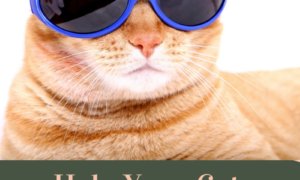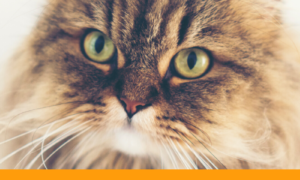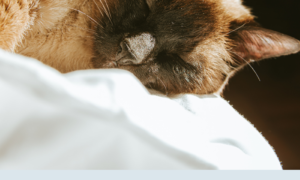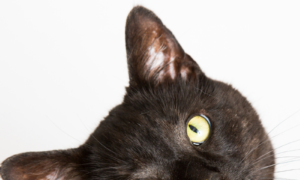While our pets don’t speak English, they do say a lot through their body language. And anyone who owns a cat (or, better yet, is owned BY a cat!) will most likely tell you they can be rather peculiar creatures. They can exhibit odd mood swings, sometimes for no apparent reason. They are also quite sensitive to things that we cannot see or hear, such as illness.
What about the weather? Can cats predict weather? For centuries people have turned to animals for predictions about the weather. Folklore or not, if you have experience with animals, you will most likely agree that some animals behave in a certain manner when there is going to be a change in the weather.
For example, roosters will crow before rain; cows may graze towards shelter before rain; herd animals may stampede towards shelter when rain is imminent; and pigs may utter a low song when a storm is likely.
According to pethelpful.com, nearly all animals will present with a change in behavior to alert you to the coming storm. But for some reason, the cat is probably one of the best barometers for such change. Cats have a keen, innate ability to predict something strange in the atmosphere.
When dogs exhibit odd behavior towards changes in the weather, those behaviors are usually quite predictable. They may hide under a bed, whine or maybe even bark.
What about when cats predict weather? They can be more of a challenge to decode. When cats are agitated or upset, they are not as easily distracted as dogs. Cats may act out of the ordinary for their respective personalities when a strong change in weather is on the horizon. A calm cat may become hyper or a hyper cat may suddenly mellow out. That social cat may hide or scratch or that indoor feline may bolt for the nearest exit to the outdoors.
Of course, over the centuries, folklore has come into play and some of the superstitions surrounding cats included the idea that if a cat sneezes once, rain is on the way; a cat’s tail will point in the direction of the wind; if a cat plays with an article of your clothing, such as a sock, then a heavy storm is on its way; and if a cat sleeps with her back to the fire, there will be cold weather, a bad storm or snow.
Some of the following experiences have proven to be more of an indicator of bad weather than a Doppler Radar:
- When an earthquake is about to strike, you cat may become antsy or even hiss at you.
- When a cat licks his fur against the grain, expect hail.
- Widened pupils on a cat can indicate a change in weather.
- If a cat begins to scratch more than usual, warm weather could be on its way.
- If a cat suddenly becomes frisky and playful, that means the winds might be picking up.
A couple of feline behaviors that have been explained by science include the following:
- They will groom their ears more often because the changes in pressure effect their sensitive inner ears.
- When the humidity is on the rise, they will lick their fur more often to reduce static and keep it under control.
How does your cat do as an in-home meteorologist?







